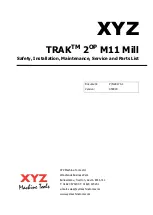
LANCOM VoIP Routers: PBX Functionalities
Chapter 3: Configuring the VoIP functions
14
EN
3 Configuring the VoIP functions
Prerequisites for the configuration of the VoIP functions in a LANCOM
Business-VoIP-Router are suitable basic settings and a functional Internet
connection. To this end, please ensure that you use the Wizards in LANconfig
to configure the basic settings, the Internet connection and the security
settings before you configure VoIP.
3.1
This is how you draw up a dialing plan
The planning of telephone infrastructure can be greatly helped by drawing up
precise details on the connections, their telephone numbers and any hunt
groups that may be required, as this information is important to the
configuration. To help you with this, you should fill out the table (below)
before you begin with the configuration.
3.1.1
PBX users
Users are all of the devices for tele(phonic) communications, i.e. ISDN and
analog telephones, SIP telephones, computers with software telephones, or
fax machines. As a rule, every user receives its own internal telephone number
that can be accessed from within the company. If necessary, multiple devices
can share the same telephone number (’Multi-login’
→
Page 36).
Use a uniform number format so as to avoid problems with the
processing of internal telephone numbers, e.g. use two- or three-digit
numbers only.
The external telephone number is used to reach the user from the PSTN (public
services telephone network). At ISDN point-to-multipoint connections these
numbers are referred to as MSNs (Multiple Subscriber Numbers). At an ISDN
point-to-point connection you enter the direct-access telephone number
(DDI, Direct Dialing-In). You should then enter the type of device and
connection.
Please observe the maximum number of users permissible for your
LANCOM model.
The following table provides an overview of the allocation of users to hunt
groups (’Hunt groups’
→
Page 16), which suffices for many applications.
















































